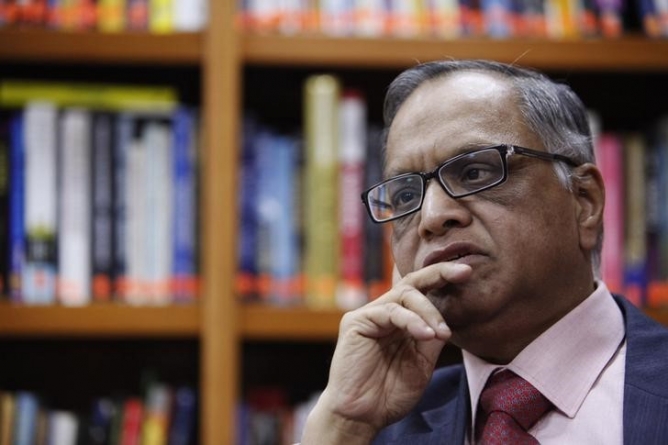-
LONDON: Indian-Origin Teen In UK Gets “Life-Changing” Cancer Treatment - 1 day ago
-
SILICON VALLEY: All About Pavan Davuluri, New Head Of Microsoft Windows - 1 day ago
-
LONDON: UK’s India Gate To Commemorate Role Of Indian Soldiers From World Wars - April 24, 2024
-
HARARE: Shri Bramha Kumar appointed as the next Ambassador of India to the Republic of Zimbabwe - April 23, 2024
-
LONDON: Indian-Origin Principal Wins UK Legal Challenge Over School Prayer Ban - April 23, 2024
-
TORONTO: Indian-Origin Doctor Needs ₹ 2 Crore For Legal Fees. Elon Musk Responds - April 22, 2024
-
KINSHASA: India-Democratic Republic of Congo Foreign Office Consultations - April 21, 2024
-
LONDON: UK Court Allows Sale Of Nirav Modi’s Luxury London Apartment - April 21, 2024
-
TEHRAN: Travel advisory for Iran and Israel - April 20, 2024
-
LUXEMBOURG: Shri Saurabh Kumar concurrently accredited as the next Ambassador of India to the Grand Duchy of Luxembourg - April 20, 2024
BANGALORE: 10 lessons from life and times of NR Narayana Murthy
BANGALORE: NR Narayana Murthy, who
celebrates his 75th birthday on August 20, is a role model for not just what he
achieved but also how he did it.
Born in
Shidlaghatta town of Chikkaballapur district of Karnataka, this iconic IT
entrepreneur has, before retiring, graced many hats at Infosys, such as
chairman, chief executive officer (CEO), president, and chief mentor.
Here are
10 lessons from Murthy’s life and times that all individuals can emulate and
learn from.
1. Trust Yourself
Murthy, a self proclaimed ‘socialist’ in the mid 1970s was jailed for 72
hours in Bulgaria. It was a bitter experience on a train in 1974 in Nis, a
border town between what is now Serbia and Bulgaria, that turned Murthy into a
‘compassionate capitalist’. The experience taught him that entrepreneurship and
job creation is the way to alleviate poverty.
To that end, in 1976, Murthy founded Softronics, a company that lasted a
year and a half. When he realised that his first venture wasn’t taking off, he
moved on.
In 1981, a determined Murthy started Infosys with Rs 10,000 he borrowed from
his wife. In few years, Infosys went on to become one of the largest wealth
creators in the country.
2. Have Integrity
When Infosys was set up, Murthy took a pay cut while salaries of other
co-founder’s were increased by 10 percent. According to Murthy, a leader needs
to show his or her sacrifice and commitment.
In the ’80s Infosys developed an application for a German client. Murthy
noticed a single character error and informed the client immediately.
Murthy’s decision to not allow founders to continue with the company after
the age of 65 set another standard for the company. This way, younger
leadership at Infosys have a greater chance at reaching top positions.
Murthy prefers to be open and transparent in his dealings; this have given
the company a great deal of credibility. To this end, Murthy often quips,
“When in doubt, please disclose.”
3. Trust But Verify
‘In God we trust, the rest must come with data’, is a favourite of Murthy’s
maxims. When confronted with difficult decisions, he tends to rely on data.
Infosys almost wound up in 1990. Murthy did not want to sell the company. He
asked co-founders if they wanted out and offered to buy their shares. All of
them stuck together.
Infosys won a contract from Reebok in the early ’90s. Seeing the founders
involvement, the software, was nick named ‘Dinesh, Murthy and Prahlad.’ Infy
veterans still recall those days.
4. Trusting Your Support Pillar
He met his wife Sudha Murthy in Pune, where she was breaking the
glass-ceiling; hired on merit at the TELCO plant as an engineer in the days
when a car manufacturing plant shut the doors to women engineers.
Narayana Murthy and six software professionals founded Infosys in 1981 with
an initial capital fund of Rs 10,000, which was provided by his wife.
Today Sudha Murthy – an acknowledged Engineering academician in her own right
and a celebrated author – heads the Infosys Trust that works for the
underprivileged.
According to wife Sudha, Murthy was always broke, he always owed her money.
“For three years, I maintained a book of Murthy’s debts to me. No, he
never returned the money and I finally tore it up after our wedding. The amount
was a little over Rs 4,000,” she said in her book.
5. Belief In Higher Education
Drawing on the remarkable Infosys story and the his experiences in a
post-reform India, Narayana Murthy has penned an inspiring book called: Better
India: A Better World. In it Murthy lays down the ground rules that must be
followed if future generations are to inherit a truly progressive nation.
Murthy has said that learning and expanding our minds also helps us with our
softer skills. “Higher education teaches you to be pluralistic and to be
tolerant of other views. Higher education is all about opinions – your opinion
vs my opinion. I would as much respect your opinion as my own, but I may not
follow yours.”
Murthy has reposed his faith in teachers to mould the new generation and
said the future of India depended on the teaching community more than any other
category of professionals.
6. Encourage Merit, Reject Nepotism
Murthy told his wife that only one of them could be with the company.
Murthy, along with other founders, said that none of their children would work
for Infosys. This left no room for nepotism at Infosys.
The Murthys have two children – son Rohan Murthy and daughter Akshata
Murthy. Their son-in-law Rishi Sunak is the British MP and Chancellor of
the Exchequer, the equivalent of a Finance Minister in India.
Murthy believes in the power of hiring not just the right people, but more
so those who are smarter than oneself. That is where lies the chance to keep
learning and innovating.
The India Inc boss says a good team is one that has “mutually exclusive and
collectively exhaustive set of skills and expertise.” And such a team is vital
for any business to grow.
7. Never Give Up
A business leader will often face tough decisions, and may even find
him/herself standing at a point where it feels like they can’t make it through.
But it’s important to keep going.
Murthy learnt this from his own experience when in 1990 Infosys almost wound
up, but he refused to give up. Adamant about not selling the company, he rather
asked his co-founders if they wanted out and offered to buy their shares. But
in the end, all of them stuck together, and the result of that stands in the
form of the $40.6 billion company.
In 1994, when General Electric wanted to re-negotiate rates, Murthy said no
to selling services any cheaper. This helped Infosys not to be overly dependent
on any one client.
8. Stay Simple
The big man of Indian IT kept his personal life simple. He lives in a
simple, middle class house and flies economy till date. Murthy has always been
accessible to people around him.
Murthy is known to be frugal with money. Despite being one of the richest
Indians, he leads a simple life. However, he does not cut corners on buying
books or brushing up on literature.
9. Adversity can be an Opportunity
Analysts forecast that the Y2K would be catastrophe and most probably be an
end of the world. They had also speculated that computers would fail and
banking systems would collapse. In reality, none of that happened. In fact,
Infosys made a great opportunity of the Y2K fears.
A major milestone in the corporate journey of Infosys was becoming among the
very firsts to feature on the Nasdaq exchange. The scrip back then was so
popular that it touched a market-capitalization of $ 100 million by 1999 or a
year before the Y2K eve.
Infosys share prices surged from levels of Rs 8,100 (top 20 highest priced
stock on Indian bourses) and has became a multi-bagger of sorts thanks to the
several splits and offers initiated by the company.
The success of Murthy and Infosys has been hailed by Fortune Magazine which
called the bespectacled IT man as the entrepreneur of our time. The Time
Magazine called him the “father of the Indian IT sector” a keyword
everyone at Nasscom (National Association of Software and Service Companies)
members and even the International Software Community completely believe in.
10. Creating an atmosphere of Trust and Growth
In 2010, the Murthy’s donated $ 5.2 million USD to Harvard University Press
for a project that aims to make India’s classical heritage available for
generations to come.
He also committed to offer Rs 10 crore to Akshaya Patra Foundation from
personal funds towards the COVID-19 relief work to distribute essential grocery
boxes to the migrant labourers and daily wage earners.
In a convocation address at Great Lakes Institute of Management, Chennai,
Murthy had said that companies should concentrate on simple business rules as
they were easy to understand, easy to follow and easy to communicate.
“Above all, one cannot cheat people with simple rules,” he had said,
adding that in order to draw and retain the best talent, he asked business
leaders to respect their employees.
“Create an environment of fast learning for them to compete in a
knowledge economy, base each and every decision on merit, fairness and
transparency, provide them with challenging work, create good career prospects
for them and invest in world-class infrastructure to enhance their
performance,” he had added.























